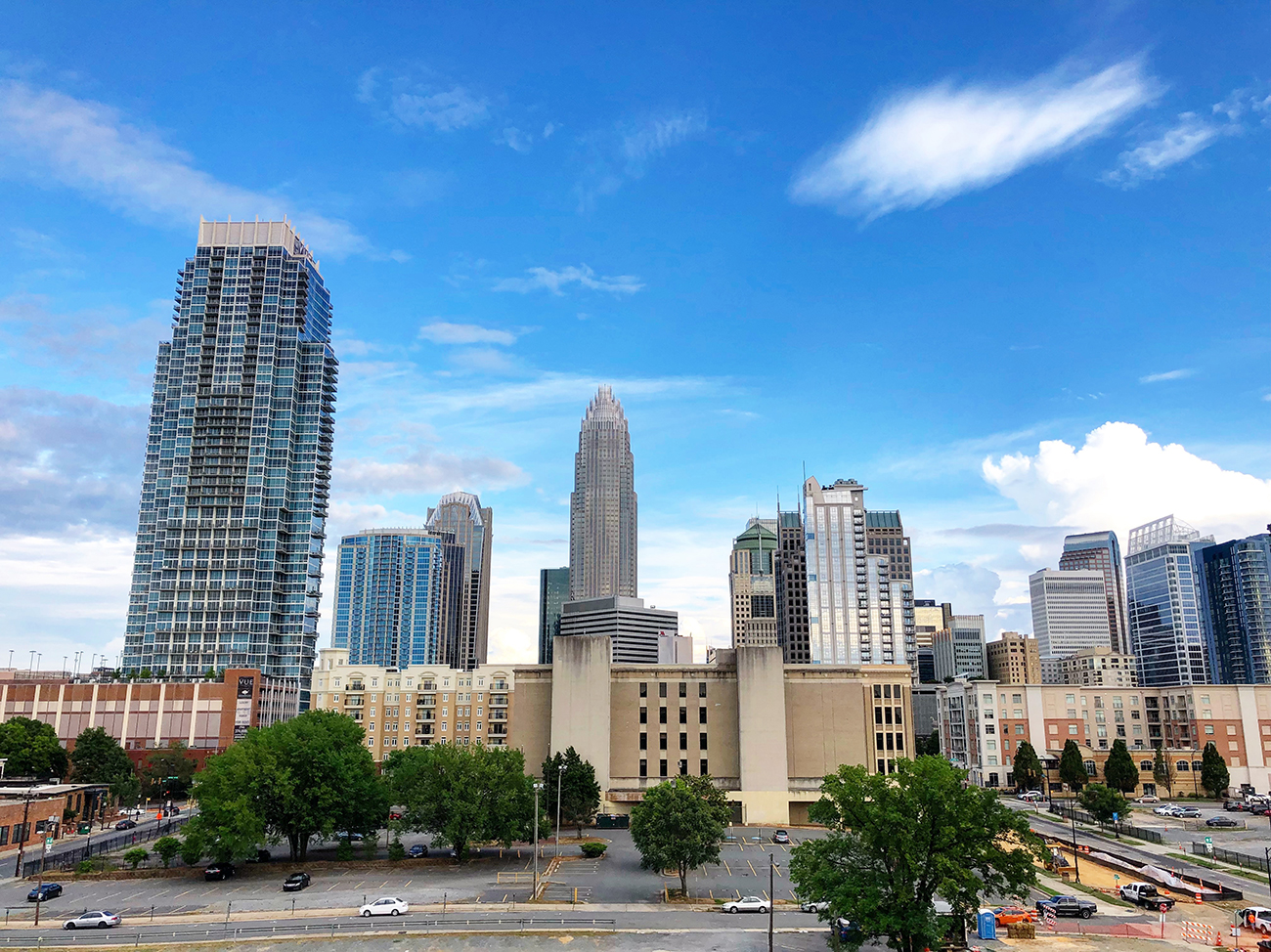
Charlotte Means Business
Charlotte has a long history—2018 marked the 250th anniversary of its founding—but its architecture is largely modern.
Many of the historic buildings have been demolished, Mr. Gentry said. That’s resulted in a sleek downtown, he added, full of glass and steel buildings.
The city has the third-biggest banking industry in the U.S., behind New York and San Francisco, and many have skyscraper offices in the city center. Bank giant Wells Fargo and Bank of America have their headquarters there, among many others.
New projects are popping up in the region as well, as more companies relocate to the area.
"It’s everything from Fortune 500 companies to mom-and-pop businesses," he said about the incoming firms.
For example, the technology company Honeywell announced in November it will relocate to Charlotte from New Jersey. Additionally, LendingTree, the financial technology company, will be expanding its headquarters in Charlotte in December.
These companies find Charlotte has a host of amenities attractive to both the business and the people who work for it, Mr. Gentry said. And although many of these amenities are on par with those that bigger cities like Miami and Atlanta offer, there’s one thing the city is conspicuously lacking.
"Traffic is nowhere near as much of a problem as it is in other major metropolitan areas," Mr. Gentry pointed out.
At the same time, the Charlotte Douglas International Airport is one of the busiest in the country, and a hub for American Airlines. Mr. Gentry said it’s a "huge asset" to the city, especially when companies are considering relocating.
In recent years, the city has indeed led an "aggressive expansion of the airport," Mr. Jackson said. The number of direct flights has increased, allowing executives easy travel options.
Executive Appeal
The city also attracts a strong workforce, which is another plus for companies, the agents said.
Families are drawn to its good schools, warmer weather and a "strategic location" near both beaches and mountains, Mr. Gentry said. It also has a friendly vibe, and many millennials see Charlotte as an alternative to more metropolitan areas like New York or San Francisco.
"It’s like a big, small town," he said. "You can go almost anywhere and run into people you know."
It doesn’t hurt that it’s affordable.
The average sales price in 2018 was $286,796, up 6.4% from 2017, according to the Charlotte Regional Realtor Association’s report. In addition, the number of homes available for sale dropped 5.9% in 2018 compared to 2017, according to the association.
But the city has been hit by the "apartment boom," Mr. Gentry said. A number of multi-use developments are underway in Charlotte, where the street-level space is "snapped up" by restaurants and other retail.

Outlook
Mid-range homes are selling extremely fast, the brokers said, and the high-end is also seeing growth, albeit slower.
Mr. Jackson has seen increased sales on the luxury side. In 2018, there were 200 sales over $1 million, he said, compared to 140 in 2017.
He is working with several clients from Honeywell, who will soon be leaving the Garden State for the Queen City. These buyers are sometimes surprised to see how much house they can get.
"There’s a lot of value here," he explained. "Here you’d spend $2 million to $3 million on a home that would cost $5 million to $10 million in other metropolitan areas."
Because of that, buyers are steering toward cities like Charlotte, where they can get more for their money. And Charlotte is unlikely to see the slip in luxury prices that some major metropolitan areas are experiencing.
"As Charlotte emerges as a city, you’ll see the properties increasing in value," Mr. Jackson said. "Long-term, it’s a great investment."
Source: V.L. HENDRICKSON (Mansion Global)
Photo credits to the owner
Follow us:
IG: southcrestrealty
Twitter: southcrest2012
Facebook: SouthCrest Realty